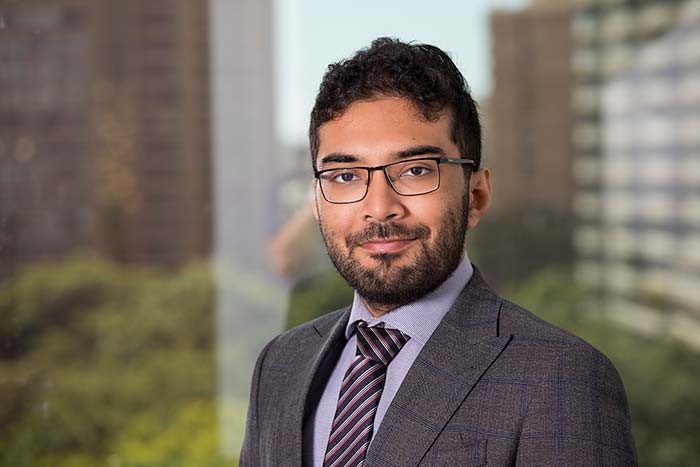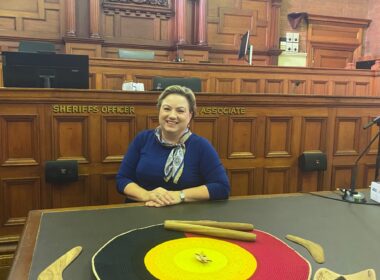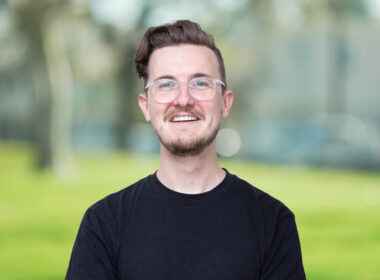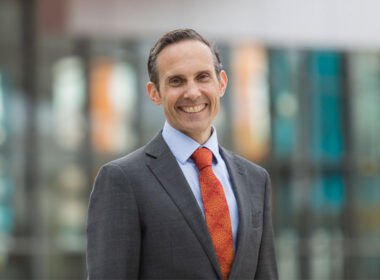Mohamed Naleemudeen is an early career international criminal lawyer at Nyman Gibson Miralis Defence Lawyers in Sydney. His practice focuses on domestic and international white collar crime investigations, sanctions, and extraditions. Naleemudeen holds a Master of Public and International Law from the University of Melbourne and is Chair of the Law Society of NSW Young Lawyers International Law Sub-Committee. He talks to LSJ about his career and the importance of community.
Why did you pursue a career in law?
I grew up in Sri Lanka when the Civil War was going on. We were relatively safe within the capital of Colombo but there was always the threat of war going on in the northern part of the country. Many of my family members were affected by it and my parent’s hometown was unvisitable for most of my childhood. Conversations about justice and human rights were always prominent in my household. My mother is also a lawyer and having that influence made me want to study law. Coming from an underdeveloped country, lawyers were seen as providing hope – that they’d bring us justice at the international stage and even at the local stage, bringing justice to the people and the victims on either side of the war.
Talk us through a typical day in the life.
At Nyman Gibson Miralis, the work we do is quite diverse. Some of the work is typical corporate white-collar crime, tax fraud or advice regarding sanctions, and some of it is extraditions, which is more administrative but traditional criminal law. It changes every day. We have international clients so the meetings can sometimes go late. It’s hard to know exactly what a day will look like. There’s a lot of meetings, research, drafting memorandums, legal advice, submission statements and meeting clients. Sometimes, an international meeting can take up to three hours because you’ll spend one hour preparing for it, noting the client’s cultural and language differences, and one hour afterwards breaking down what they communicated and relaying it to your team.
What are you most proud of?
I’m a person who values their career quite highly. I did an honours thesis as part of my Bachelor of Laws, and I was able to get that published in two separate journal articles which I was quite proud of. It was about the treatment of young people and children in Victorian prisons, and how that’s a violation of Australia’s international law obligations. It’s been cited several times and has helped to bring attention to such a brutal issue. That is something I feel good about.
What made you want to become Chair of the NSW Young Lawyers International Law Sub-committee?
I didn’t initially join wanting to become Chair. I had moved from Melbourne and wanted to become a member of the Law Society of NSW to meet other lawyers. I thought it was a very cool opportunity to contribute to an area I’m interested in. I initially started as Vice Chair and when the Chair stepped down, I moved into that role as I enjoy running projects and am passionate about making international law more accessible to Australian lawyers.
How important has networking and community been to your career?
It’s super important. I’m lucky because I’ve always had people willing to help me. Networking has been crucial to my career. At La Trobe University it was very collegiate, they promoted less competition between students and more working together in groups. The La Trobe Law Students’ Association put on a lot of events where I met students from various years who helped me. Senior students would tell me about upcoming competitions or internships to apply for. That’s how I got the War Crimes Tribunal internship in Cambodia where I met even more lawyers from around the world.
What is your advice for other young lawyers?
Don’t feel intimidated in reaching out to people, whether that’s on LinkedIn or email. Right now, I’m doing research work for a professor because I looked up his work online and reached out to him directly. We set up a coffee and now I do research work for him which is aligned with my academic interests. Whenever I find people who are interesting, I just send them an email. Even if they don’t have a role for me, they are always willing to give me advice or tell me how they got to where they are. I think this approach is extremely useful for young lawyers. It may seem intimidating to contact people in positions of seniority but they’re just human and generally willing to chat.




